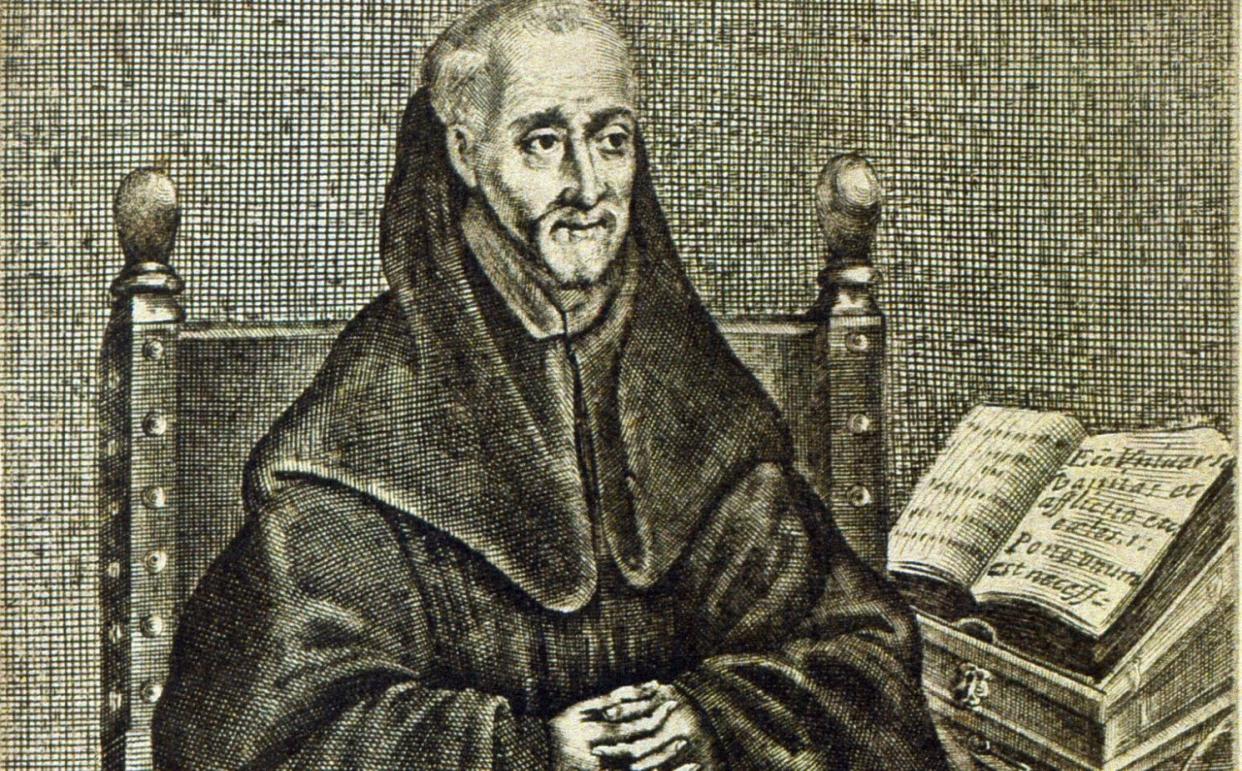Sacred Mysteries: A happy surprise found by reading the wrong book

I came across a sentence in a book recently that really struck me. It is a familiar experience for many people. A friend had told me how useful she had found a book by Francis de Sales called Introduction to the Devout Life, first published in 1609. The author advocates prayer for ordinary people at their workshops or at home, not just for people living in monasteries.
Since I hadn’t read it for years, I looked out my copy. I knew where it was on the shelf. But I couldn’t find it. Instead I picked up another little green-covered nook, Holy Wisdom by Augustine Baker. This too promotes prayer that is not merely a request for things from God, but “an affectuous activation of an intellectual soul towards God, expressing, or at least implying, an entire dependence on him as the author and fountain of all good”. (Generally the book’s language is plainer.)
Augustine Baker (1575-1641) was trying to follow a contemplative life as a Benedictine monk at a difficult time, to say the least. He rescued from obscurity treatises on prayer from the 14th-century English flowering represented by Walter Hilton, Richard Rolle, Julian of Norwich and The Cloud of Unknowing. Though he had made friends with leading antiquaries and bibliophiles in London, such as Sir Robert Cotton and William Camden, he knew the dangers of life in England, where priests ordained abroad risked execution.
Baker became chaplain to a convent of nuns (including four descendants of St Thomas More) at Cambrai. The nuns had to function in exile but they enjoyed a degree of liberty in their own sphere unusual in that era, and they were open to high ideals in their life of prayer.
From the treatises on prayer that Baker wrote for them, 40 were edited into a compendium by another Benedictine called Serenus Cressy. He published it in 1657 under the title Sancta Sophia. Despite its ambitious goal it became a permanent favourite among recusant Catholics back in England who were trying to pursue a life of holiness without public churches but with burdens of legal penalties.
Anyway it was an edition of Cressy’s compilation that I had pulled off the shelf. The sentence that struck me was: “By prayer alone all exterior good things are sanctified, so as to become blessings to us.”
A modest example is the practice of saying grace (even if silently) before meals. Grace comes before the meal, because it is not a thank-you for a delicious repast. It is a blank cheque, as it were, giving thanks for this exemplar or pattern of a gift from God: daily bread. Even if the toast is burnt, it has been given thanks for. But as a rule the toast is not burnt, and there might even be some marmalade.
With a prayer, food is turned from an indulgence judged by its quality into a blessing. When Augustine Baker speaks of “all exterior good things” he must mean everything that is not evil. Even things that are negative, such as pain and death, can be sanctified and become a blessing. But it works with trivial matters, like catching buses or walking upstairs, which is how most of our time is consumed.
Ordinary providence operates through secondary causes: in other words, bread becomes toast by exposure to heat. Yet you can still thank God for it, because he is in charge of the whole shop, from sub-atomic particles to galaxies. They exert causality according to their properties, but God is the first cause and does what he wants. It is not imagining special meanings to recognise that picking up the wrong book can be a stroke of good fortune.


